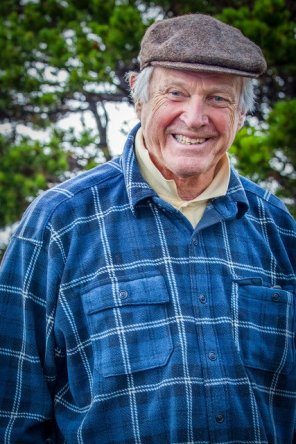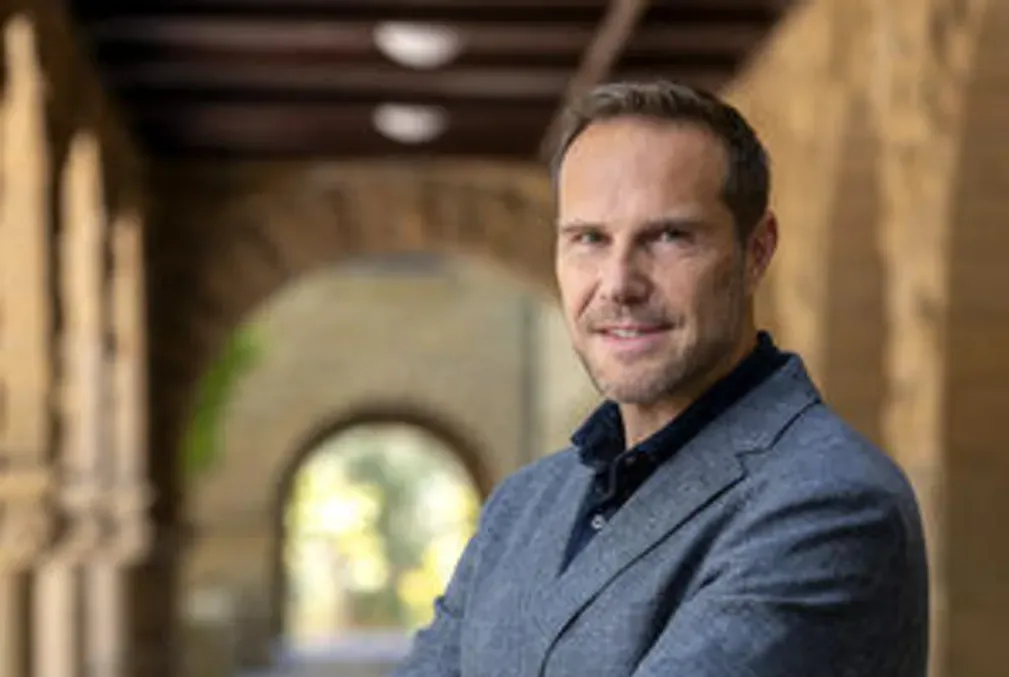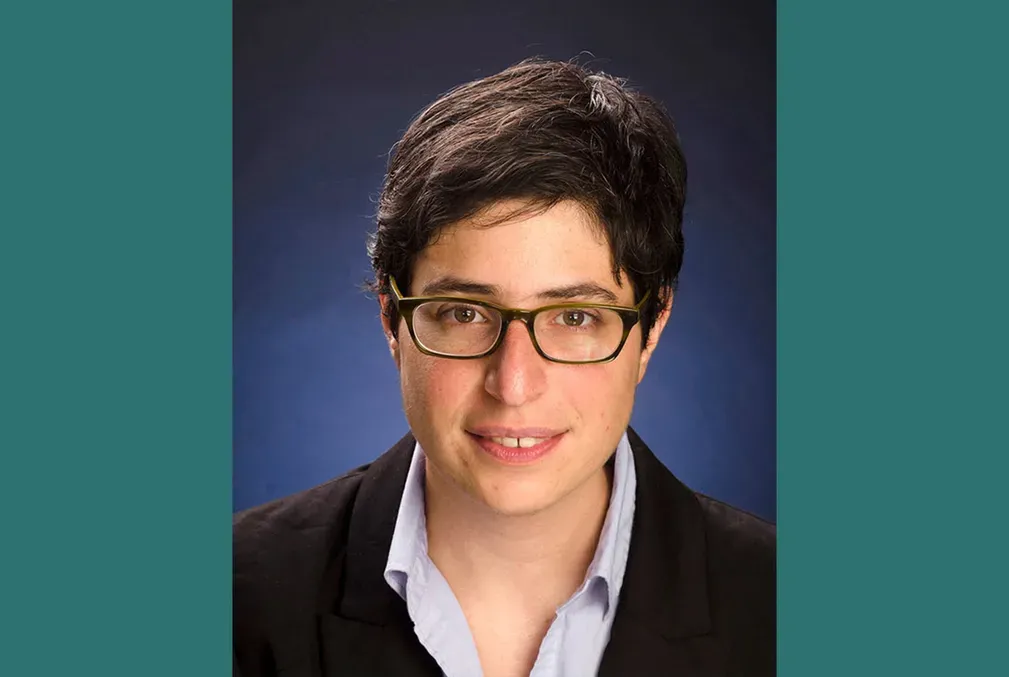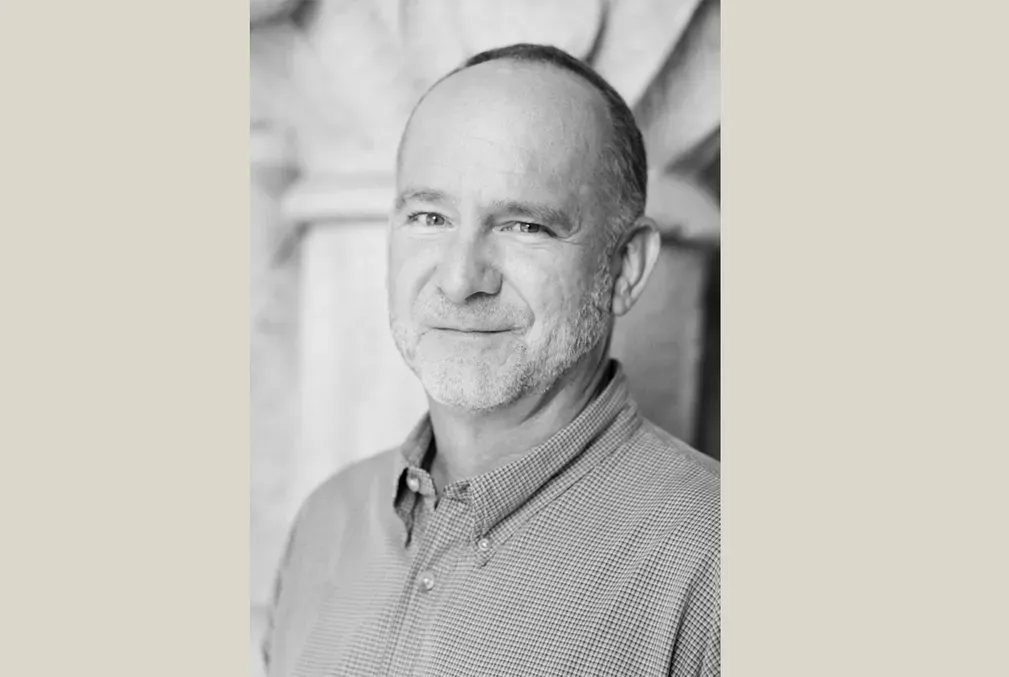Stanford Professor W. Bliss Carnochan dies
W. Bliss Carnochan, leading scholar of 18th-century English literature and former director of the Stanford Humanities Center, has died
W. Bliss Carnochan, the Richard W. Lyman Professor in the Humanities in the School of Humanities and Sciences (H&S), Emeritus, and a leading scholar of 18th-century English literature, died January 24. He was 91.
Carnochan, former director of the Stanford Humanities Center, spent his entire 31-year academic career at Stanford after joining the Department of English faculty in 1960 and serving as chair from 1970-72. He was a valued leader in the Stanford community, as dean of graduate studies and vice-provost of the university (1975-80), and as director of the Stanford Humanities Center from 1985-1991. He retired in 1994.
Terry Castle, the Walter H. Haas Professor in Humanities in H&S, Emerita, credits Carnochan’s “wide-ranging curiosity” with making him an inspiring director of the center in its early days.
“As director of the Stanford Humanities Center, Bliss was a large presence,” said Susan Sebbard, assistant director of the center. “He brought tremendous energy, passion, wisdom, and warmth to every aspect of the work. He welcomed the resident scholars, buoyed the staff, deftly handled formidable administrative challenges, and engaged friends who became major supporters of the center.”
Founding the Humanities Center
While he was Dean of Graduate Studies, Carnochan and Herbert “Herbie” S. Lindenberger, the Avalon Foundation Professor in Humanities in H&S, Emeritus, approached then-Provost Donald Kennedy about starting a humanities center at Stanford. They received the green light and soon it became a reality. Carnochan served as the Humanities Center’s second director and helped develop it into one of the largest humanities centers in the country.
“We started off very, very small,” Carnochan told the Stanford Historical Society in an oral interview in 2013. “The first class of fellows might have been three or four people. They met in a room adjacent to the English Department. We’re approaching 35 years now of the Humanities Center, and it is a major undertaking, a major institution.”
Carnochan is known for writing and co-authoring numerous books and papers, including his book Lemuel Gulliver’s Mirror for Man (University of California Press, 1968) about Jonathan Swift’s Gulliver’s Travels. He is also known for his book Gibbon’s Solitude: The Inward World of the Historian (Stanford University Press, 1987) about Edward Gibbon, author of The Decline and Fall of the Roman Empire.
Carnochan’s other publications are a diverse collection of writings on topics of interest to him, including his own background. These include a short memoir, Momentary Bliss (Board of Trustees, Leland Stanford Jr. University, 1999); Scotland the Brave: A Mosaic (Galloway Hills Press, 2013); and Confinement and Flight: An Essay on English Literature of the Eighteenth Century (University of California Press, 1977).
He was the inaugural holder of the Anthony P. Meier Family Professorship in the Humanities in H&S (1988-91). He was a member of both the Modern Language Association and the American Society for Eighteenth-Century Studies.
Along with his scholarly work, Carnochan is remembered for fostering community at Stanford, his elegant demeanor, and his infectious laugh. “With a group of colleagues, we had monthly dinners that were both formal and historical,” said Stephen Orgel, the Jackson Eli Reynolds Professor in Humanities in H&S, Emeritus. “We wore formal attire and the recipes came from 18th-century cookbooks. Bliss was in his element.”
Orgel first met Carnochan in graduate school at Harvard University. “Over the years, and eventually when I came to Stanford myself, he never ceased to be a model for me,” he said. “He was learned, gracious, poised, and the best of friends.”
Humanities advocate and mentor
Carnochan weighed into the curriculum debates of the 1990s with a book titled The Battleground of the Curriculum: Liberal Education and American Experience (Stanford University Press, 1993). He was a strong proponent of providing students with a background in the humanities. “You really do need to know—and I’m going to put this in a capital letter—History,” he told the Stanford Historical Society.
For Carnochan, there were many ways beyond the standard curriculum to come to a greater understanding of the past and of other cultures, something he felt was important for students who are functioning in a technologically connected global world.
Carnochan was a mentor to many students over his 31 years at Stanford. “He combined wide knowledge and high standards with a rare wit and true generosity,” said Victory Van Dyck Chase, ’63, an English instructor and writer, who remained friends with Carnochan for over 60 years. [He] “made me a better thinker and writer than I would have been without him. And probably a better person.”
Heading West
Carnochan was born and raised in New York City. He attended Harvard University as an undergraduate, the third generation of his family to do so, earning a degree in history and literature in 1953. After graduating from Harvard, he spent a year at Oxford University, where he rowed crew for New College.
He returned to Harvard as an assistant dean of freshman and earned his doctorate in English in 1960. When he drove to Stanford for the first time that same year to begin his job in the Department of English, he had never been west of Pittsburgh.
“It is melancholy to speak now in the past tense of Bliss's tact, kindness, and human warmth, the unfeigned delight he took in everyday life and the wider world, and the intellectual generosity and comradeship he evinced toward colleagues, students, and friends over many years at Stanford,” said Castle.
Carnochan is survived by his wife Brigitte, five children and 10 grandchildren, all of whom were with him on Christmas Day to celebrate his 91st birthday. A memorial service is being planned for later in the year at the Stanford Humanities Center.
Gifts in lieu of flowers can be made to the "Bliss & Brigitte Carnochan Fund for 18th-century Studies" at the Stanford University Libraries https://give.stanford.edu/carnochanmemorial.




